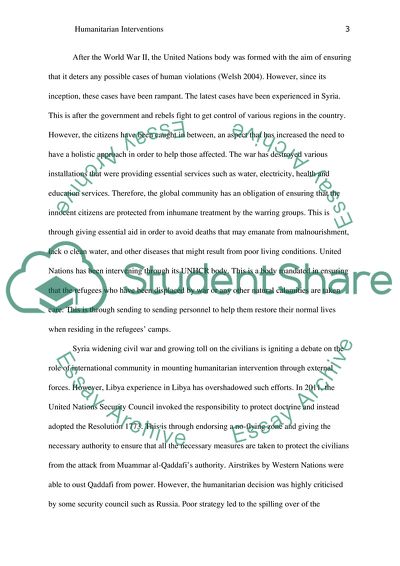Cite this document
(Along What Lines Can Humanitarian Interventions Be Critiqued Coursework Example | Topics and Well Written Essays - 2500 words, n.d.)
Along What Lines Can Humanitarian Interventions Be Critiqued Coursework Example | Topics and Well Written Essays - 2500 words. https://studentshare.org/social-science/1868604-along-what-lines-can-humanitarian-interventions-be-critiqued
Along What Lines Can Humanitarian Interventions Be Critiqued Coursework Example | Topics and Well Written Essays - 2500 words. https://studentshare.org/social-science/1868604-along-what-lines-can-humanitarian-interventions-be-critiqued
(Along What Lines Can Humanitarian Interventions Be Critiqued Coursework Example | Topics and Well Written Essays - 2500 Words)
Along What Lines Can Humanitarian Interventions Be Critiqued Coursework Example | Topics and Well Written Essays - 2500 Words. https://studentshare.org/social-science/1868604-along-what-lines-can-humanitarian-interventions-be-critiqued.
Along What Lines Can Humanitarian Interventions Be Critiqued Coursework Example | Topics and Well Written Essays - 2500 Words. https://studentshare.org/social-science/1868604-along-what-lines-can-humanitarian-interventions-be-critiqued.
“Along What Lines Can Humanitarian Interventions Be Critiqued Coursework Example | Topics and Well Written Essays - 2500 Words”. https://studentshare.org/social-science/1868604-along-what-lines-can-humanitarian-interventions-be-critiqued.


